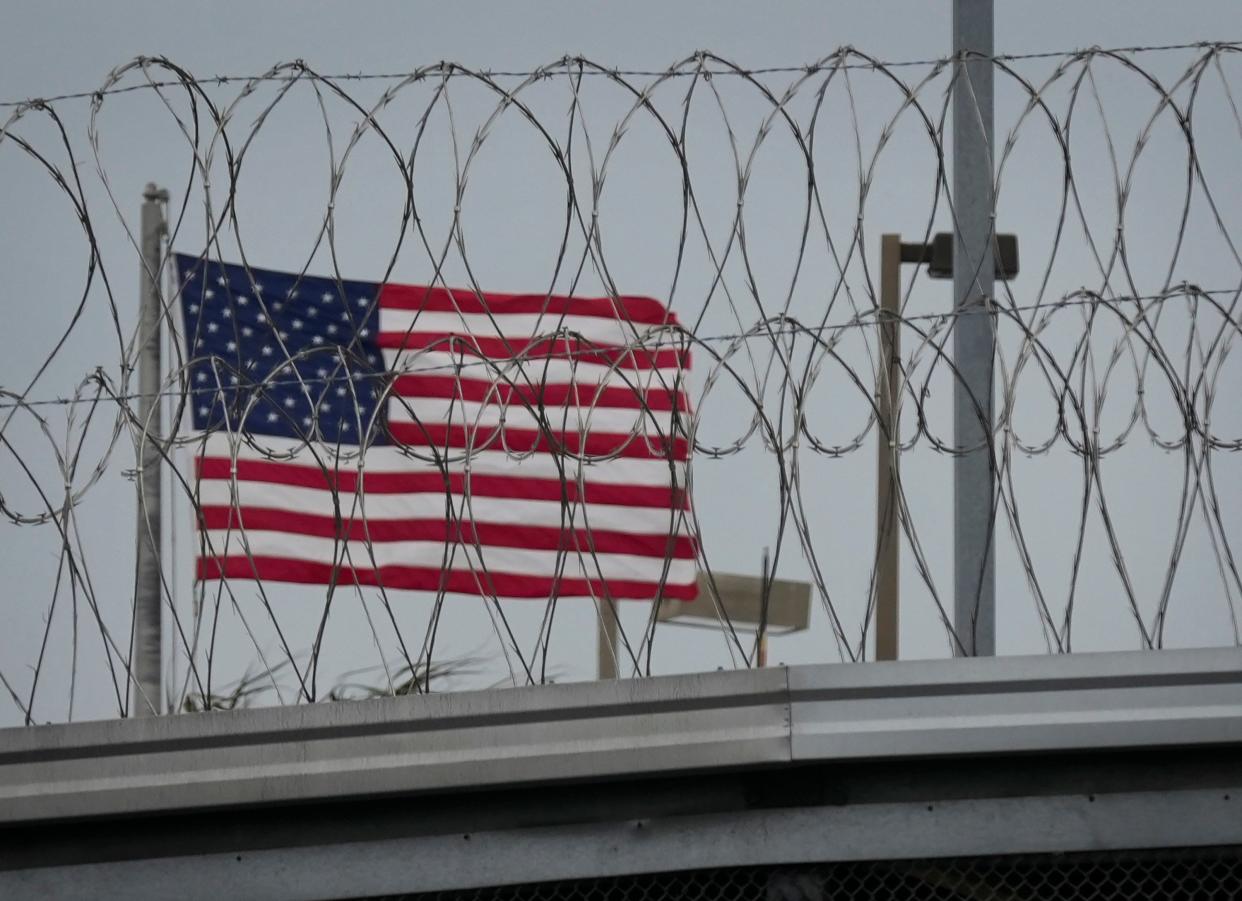Travis County moves to provide lawyers at bail hearings after activist concern over SB 4

Shortly after immigration advocates and the American Civil Liberties Union of Texas argued that Senate Bill 4 — which would allow state and local police to arrest migrants and empower judges who conduct magistration to give deportation orders — highlights the urgent need for counsel at first appearance, Travis County officials have announced plans to provide lawyers at bail hearings.
The possibility that SB 4 will go into effect galvanized advocates for counsel at first appearance in Travis County, who said that the need for legal representation immediately after an arrest will be particularly urgent for migrants under the new state law. SB 4 would empower judges, during magistration, to give migrants a choice between deportation and being charged under the law.
SB 4 has been temporarily blocked by the 5th U.S. Circuit Court of Appeals while it considers the law's legality. Before it was placed on hold, SB 4 went into effect for about nine hours March 19.
After years of uncertainty, Travis County will again try to implement counsel at first appearance and will begin providing lawyers for bail hearings during two test shifts in late April. County Judge Andy Brown said that the sped-up timeline was due to concerns raised by immigration activists at a recent Commissioners Court meeting and a letter sent by a collection of advocacy groups, including the ACLU of Texas.
In Travis County, people who are arrested do not currently get legal representation during magistration, the hearing in which a judge sets bail and release conditions. Local officials and Austin defense attorneys have long been concerned about the lack of legal representation during magistration, which they say could amount to a constitutional violation. Advocates have pointed out that, in jurisdictions in which it's in place, counsel at first appearance lowers the likelihood of pretrial detention and the use of cash bail.
Advocates say that the absence of counsel at these hearings would particularly jeopardize people who are undocumented. Immigration advocates have repeatedly highlighted the debilitating effects of deportation.
“Think about it as a mental health crisis, an economic crisis, a familial one,” said Carmen Zuvieta, who saw her husband deported from the U.S. in 2013. She spoke to the American-Statesman in Spanish. “For us this is highly urgent, necessary.”
The stakes at hand
Texas lawmakers in November passed SB 4 to codify a series of new penalties for anyone suspected of crossing into the U.S. in Texas other than through an international port of entry. The penalties range from a Class B misdemeanor to a second-degree felony.
If SB 4 goes into effect, a person arrested under the law could agree, during magistration, to a deportation order in lieu of being prosecuted for illegally entering the country. Without counsel at first appearance, those arrested could make that decision without consulting a defense attorney.
"People have a right to speak with a defense attorney who can advise them about the immigration consequences of any pleas," said Savannah Kumar, an attorney at the ACLU of Texas. In the absence of counsel at first appearance, Kumar said, this right would be denied to people subject to deportation under SB 4.
In late February, Travis County Chief Public Defender Adeola Ogunkeyede wrote a letter to the municipal judges who conduct magistration in the county, urging them "not to exercise their discretionary power to order people to leave the United States under this new law."
Even if SB 4 does not go into effect, immigration advocates said that a lack of representation at magistration can place someone's immigration status in jeopardy.
“Someone is left vulnerable, who may speak up, answer questions that are not in their interest and position themselves for deportation,” said Robert Lilly, a criminal justice organizer for Grassroots Leadership.
What is the status of CAFA in Travis County?
Recent advocacy for counsel at first appearance sped up Travis County's plan to provide legal counsel at bail hearings, which had languished since a short-lived 2022 pilot program was canceled due to a staffing shortage at the sheriff's office.
Brown, the county judge, told the Statesman that he and the Travis County Commissioners Court have been committed to ensuring "access to justice for everyone that comes through the court system." He said that the two-day test of counsel at first appearance, tentatively scheduled for April 23 and 25, will be followed by widespread implementation.
Brown said that the Commissioners Court has made efforts since 2022 to fund recruitment and retention at the sheriff's office. In December, Travis County Sheriff Sally Hernandez told the Commissioners Court that vacancy rates had improved.
During a March 21 Commissioners Court meeting, advocates from the Austin Sanctuary Network argued that counsel at first appearance was of particular concern for migrants. Some argued that Hernandez stood in the way of its implementation. In a statement, Hernandez categorically denied that claim.
On March 20, almost 40 advocacy groups, including the ACLU of Texas, wrote a public letter to county stakeholders, criticizing the lack of a “concrete plan” to provide legal counsel during magistration to everyone arrested. The letter pointed out that lawyers are provided at bail hearings in Bexar and Harris counties.
In 2018, the ACLU of Texas filed a class action lawsuit against Galveston County, and in 2019, a federal judge issued a temporary injunction, ordering that the county provide lawyers at bail hearings.
Bradley Hargis, director of the Capital Area Private Defender Service, said Travis County's new plan "provides both a path forward and a concrete step towards making CAFA a reality."
Statesman Capitol reporter Hogan Gore contributed to this report.
This article originally appeared on Austin American-Statesman: SB4 Texas: A push for lawyers at bail hearings leads to pilot program

